According to FAO, and World Resources Institute the food waste accounts for 8% of global greenhouse gas emissions. According to UNEP, on a global per capita-level, 121 kgs of consumer level food is wasted each year and out of this 74 kgs of food waste is generated at households only. In India, the household food waste estimate is 50 kg per capita per year.
Once it was a natural recycle phenomenon for food waste when it was decomposed in soil and became compost. However, post urbanization the food waste is transported and dumped into empty space. It causes landfills. Unavailability of oxygen in dumping yards produces methane gas and it reduces soil organic carbon and causes soil infertility issues as organic waste is not going back to the soil.
The rapid growth of urban dwellers is contributing to the large portions of organic waste in cities thereby causing an issue of waste segregation. Generally, households segregate the waste which gets mixed up while collecting or dumping. More than 60% of organic waste is not possible to segregate in further steps. So, they burn it off and create environmental pollution and soil infertility.
There are several techniques which has developed to manage organic waste like vermicomposting, composting, black soldier fly, etc. are facing some challenges like bad odour, time consuming processes, flies, etc.
To manage all these challenges a team of people from Future-Steps developed the first product Vapra which means “something born out of soil” at Vigyan Ashram for simple composting methods. Vapra is a machine which is cost-effective, time saving, user and environment-friendly and uses sustainable methodology to decompose organic waste into 7 days.

Pavani lolla is the Founder and CEO of Futurestep who started her career as a student entrepreneur. “I was always close to the environment and that made me start a student forum called ECO CLUB at VBIT engineering college during my undergraduate years where the major activities included bringing awareness among people about the environment and composting organic food waste.”
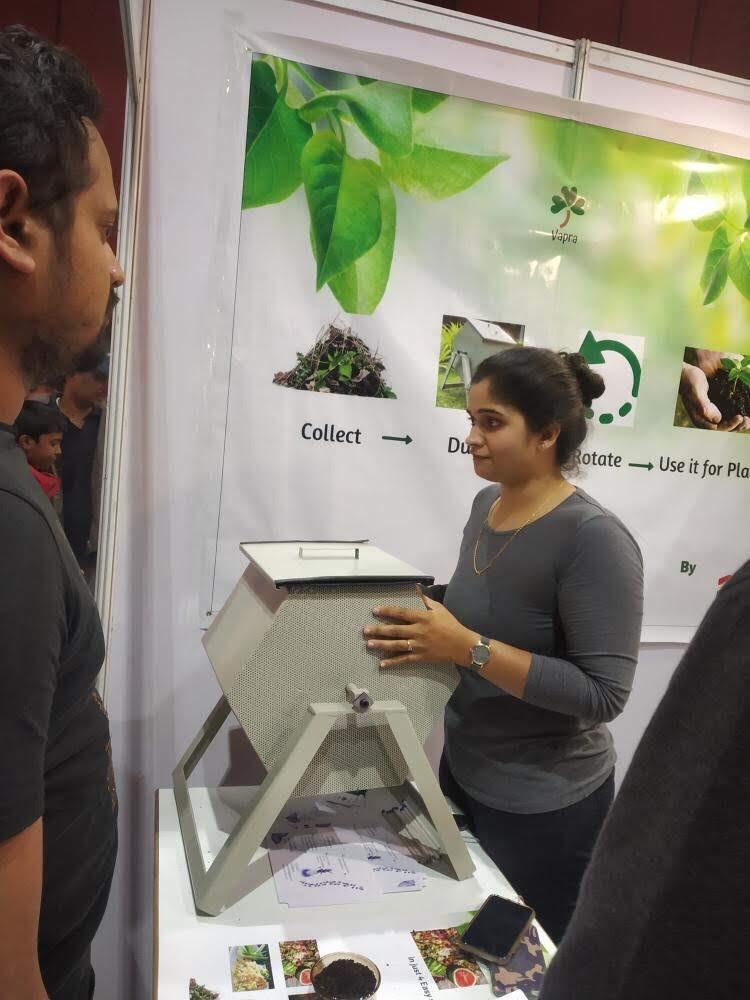
The Vapra is a manual machine which can fit underneath your kitchen basin where you can add your food scrap material directly into Vapra like a dustbin. After adding organic waste, you have to add composting culture which they give with Vapra. The Vapra machine and composting culture process has been developed with Dr. Arun Dixit in such a way to reduce the time of composting with an environment friendly process. After adding composting culture, we have to rotate it for 5-6 rotation manually. You can take compost out whenever you need and the composting process will continue by adding organic waste daily. The composting process happens in 7 days without any rotten smell.
“Methane is 26 times more potent than Carbon Dioxide as a greenhouse gas and contributor for gas emission. Composting in an anaerobic process prevents release of methane during organic matter breakdown. This is because Methane producing microbes are not active in the presence of oxygen. In landfill composting bacteria don’t get oxygen so it starts releasing Methane. It is the key difference when it comes to Vapra composter for it does not release Methane emissions”told Chief Technology Officer Siddesh Sakore while explaining the unique features of the composter.
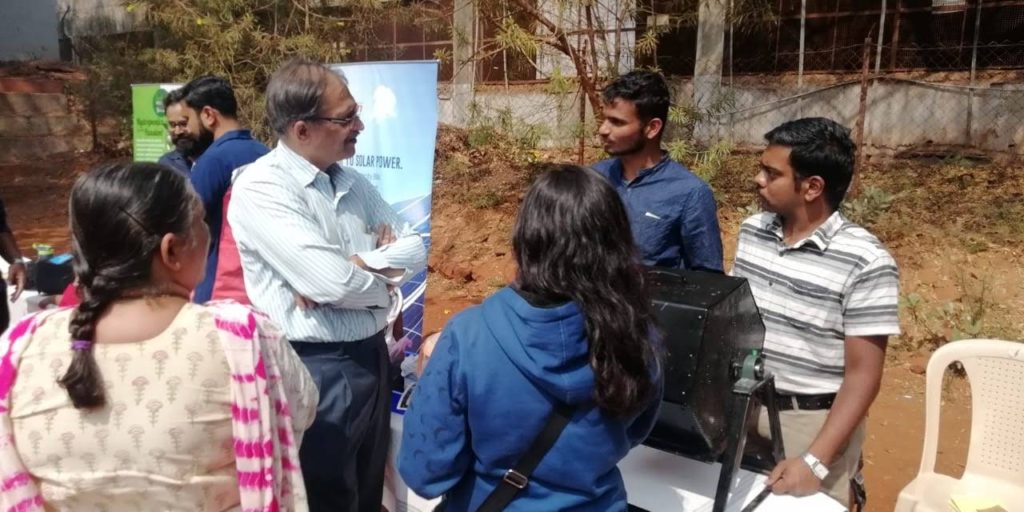
The future steps of Future-Steps company are to solve agriculture waste problems and helping people to build food gardens. They are planning to work closely with municipal corporations and local urban communities to solve their organic waste management issues. They envision that every household should have a vapra composter and turn their food waste into compost. It is one of the great examples of green innovation models which involve people to join together and reduce greenhouse gas emissions.
Future-step is presently incubated at WE-HUB in Hyderabad; and working to resolve their manufacturing related problems. Vapra-Composter is presently available for both domestic and community models. They envision that every household should have a vapra composter and turn their food waste into compost. It is one of the great examples of green innovation models which involve people to join together and reduce greenhouse gas emissions.
Are you an ecopreneur? what is your solution for green recovery?
Photo credits: Siddhesh & Pavani


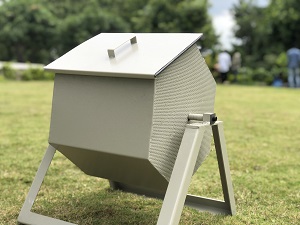
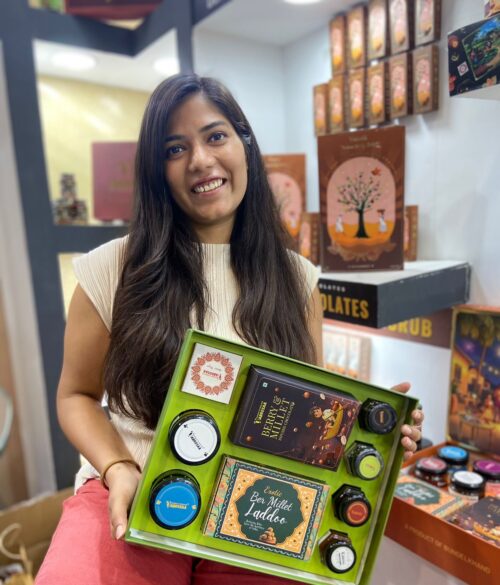
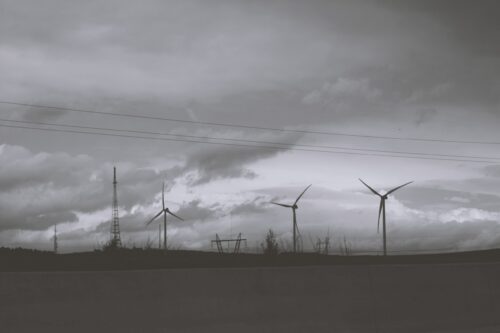
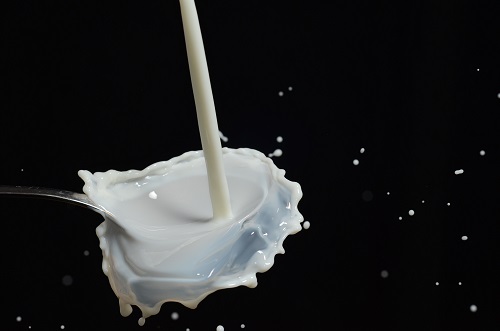
wonderful issues altogether, you just won a emblem new reader.
What might you suggest in regards to your post that you made a few days in the past?
Any positive?
Here is my website: เครื่องย่อยเศษอาหารให้เป็นปุ๋ย